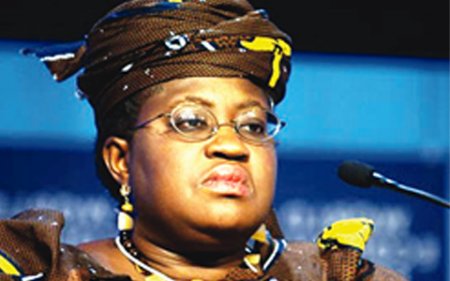L
LequteMan
Guest
Nigeria's ex Finance Minister, Ngozi Okonjo-Iweala, has stated that the lack of political will to save oil revenue under former President Goodluck Jonathan was responsible for the challenges facing the country presently.
According to the two-time minister, Nigeria was able to save $22bn under former President Olusegun Obasanjo, which she noted saved the country in 2008 during the global economic meltdown.
Citing the Chilean example, she said, “We tried it in Nigeria, we put in an oil price-based fiscal rule in 2004 and it worked very well.
“We saved $22bn because the political will to do it was there. And when the 2008/2009 crisis came, we were able to draw on those savings precisely to issue about five per cent of the Gross Domestic Product as fiscal stimulus to the economy, and we never had to come to the bank or the fund.”
She added, “This time round, and this is the key now, you need not only to have the instrument but you also need the political will. In my second time as a finance minister, from 2011 to 2015, we had the instrument, we had the means, we had done it before, but zero political will.
“So, we were not able to save when we should have. That is why you find that Nigeria is now in the situation it is in, along with so many other countries.”
On solving the problem of political will and manipulations, she said, “That is the question that I ask; what do we need to do to these countries to save over a period of long accelerated growth?
“We need to devise mechanisms not just that are good technically, but find a way to either embed them in the constitution or find a way to separate them from the political manipulation so that these countries can survive over time.
“To build resilience, African countries need tools and mechanisms, and it is doable and we need to interrogate ourselves why we have not done it.”
She spoke on the topic: ‘Inequality, growth and resilience’ recently at George Washington University, United States of America.
TheCable
According to the two-time minister, Nigeria was able to save $22bn under former President Olusegun Obasanjo, which she noted saved the country in 2008 during the global economic meltdown.
Citing the Chilean example, she said, “We tried it in Nigeria, we put in an oil price-based fiscal rule in 2004 and it worked very well.
“We saved $22bn because the political will to do it was there. And when the 2008/2009 crisis came, we were able to draw on those savings precisely to issue about five per cent of the Gross Domestic Product as fiscal stimulus to the economy, and we never had to come to the bank or the fund.”
She added, “This time round, and this is the key now, you need not only to have the instrument but you also need the political will. In my second time as a finance minister, from 2011 to 2015, we had the instrument, we had the means, we had done it before, but zero political will.
“So, we were not able to save when we should have. That is why you find that Nigeria is now in the situation it is in, along with so many other countries.”
On solving the problem of political will and manipulations, she said, “That is the question that I ask; what do we need to do to these countries to save over a period of long accelerated growth?
“We need to devise mechanisms not just that are good technically, but find a way to either embed them in the constitution or find a way to separate them from the political manipulation so that these countries can survive over time.
“To build resilience, African countries need tools and mechanisms, and it is doable and we need to interrogate ourselves why we have not done it.”
She spoke on the topic: ‘Inequality, growth and resilience’ recently at George Washington University, United States of America.
TheCable
Attachments
Last edited:

